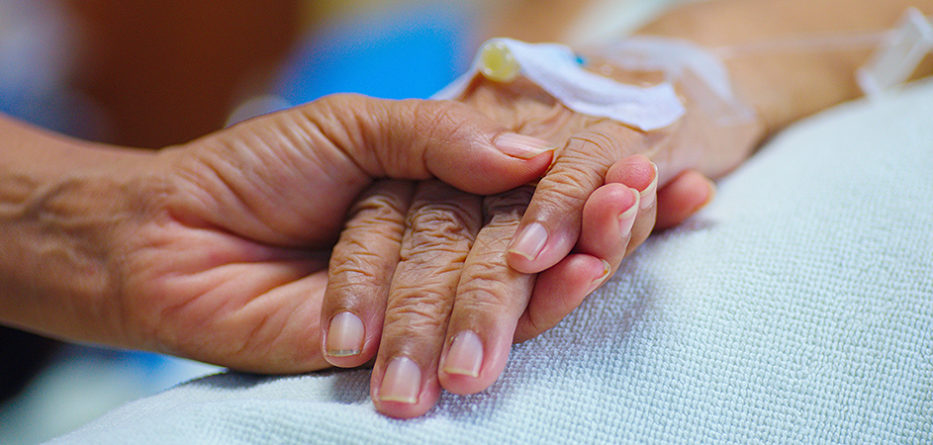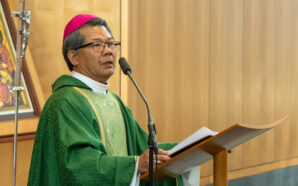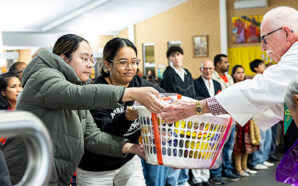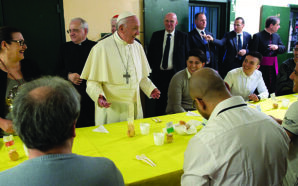The recent passage of legislation in NSW legalising voluntary assisted dying (VAD), or euthanasia, should be a wake-up call for all Catholics and people of faith to guard against what Pope Francis sees as the gradual erosion of human dignity in our modern world.
The recent document from the Vatican, Dignitas Infinita, quoting Pope Francis in Fratelli Tutti, summoned all peoples to defend human dignity in every cultural context and every moment of human existence, regardless of physical, psychological, social, or even moral deficiencies.
Human dignity is fundamentally relational, in contrast to the narrow perspective of a self-referential and individualistic freedom that decides on what we want, whether it is sinful or not.
The document also points out that suffering does not cause the sick to lose their dignity. Instead, suffering can become an opportunity to strengthen the bonds of mutual belonging and gain greater awareness of the precious value of each person to the whole human family. The dignity of those who are terminally ill then calls us as a community to make all suitable and necessary efforts to alleviate their suffering through appropriate palliative care and by avoiding aggressive treatments or disproportionate medical procedures.
The Australian Catholic Bishops Conference has also issued a statement in response to the rollout of VAD. The statement offers a two-pronged response. In highlighting the human dignity of the dying person until the moment of natural death, the statement is consistent with the Vatican document. At the same time, the statement also acknowledges that the dying person remains as someone loved by God. The statement states: “Christian accompaniment is a continuation of the ministry of Jesus Christ, who reached out to the sick, the outcast and the sinner. He never condoned evil. He did not condemn the wayward, but he always called them to conversion.”
The statement then goes on to offer some useful pastoral guidance for family and friends, healthcare professionals, pastoral care workers and chaplains, and priests as ministers of the sacraments of healing when caring for a person who requests VAD towards the end of their end-of-life care. It is important at this point that we do not confuse good palliative care with euthanasia. Palliative care is not a euphemism for VAD. In fact, palliative care seeks to accompany the dying person on their journey by providing the comfort that comes from having their pain and other symptoms managed well. Palliative care does not seek to hasten death, but rather, seeks to provide comfort and care until the moment of natural death.
VAD is designed to control the moment and mode of death. In being able to control the moment of death, VAD offers a moment of control of our own choosing, instead of praying, ‘Father, into your hands, I commend my spirit.’ In addition, VAD seeks to also control the mode of death by offering a lethal means of being put to death, rather than seeking to live life until the moment of natural death.
VAD also bypasses the deeper issues of our human existence, by ignoring our human need to be at peace with death, to live in hope in the face of death and to look forward to joining loved ones who have gone before us as we wait for loved ones who are coming after us. To these human issues, only Jesus, the Way, the Truth, and the Life, can provide an adequate human response.
It is important to understand that the politics that led to the passing of the VAD legislation in 2022 and implemented in 2023 is still active today. Hence, there is an urgent need for us as a community of faith to understand the impact of our political environment on families, caregivers, professionals and clergy who administer the sacraments in this climate, especially with respect to VAD. In particular, it is important for our Catholic community to remain united, and to collaborate with other faiths and cultural communities who are and will face similar issues when a loved one desires to seek VAD towards the end of their lives.
We are not the masters of our destiny, but are invited to follow Jesus, the Good Shepherd, who can lead us to life, life to the full, eternal life.
Michael Tan is a medical doctor and Deacon Assisting at St John the Evangelist Parish, Riverstone.
This article was originally published in the 2024 Ordinary Time | Winter edition of the Catholic Outlook Magazine. You can read the digital version here or pick up a copy in your local parish.








